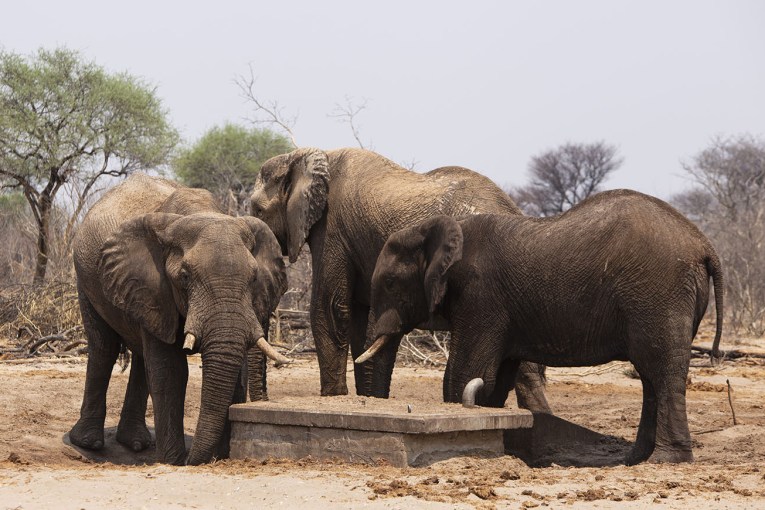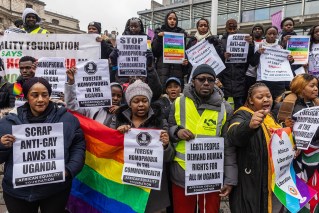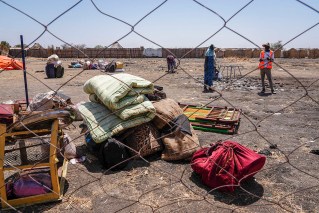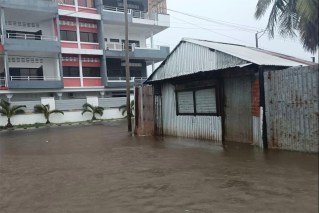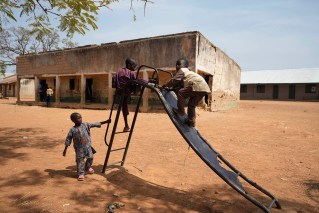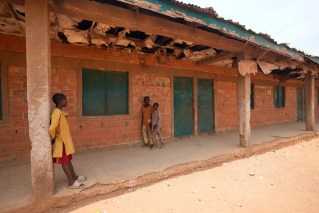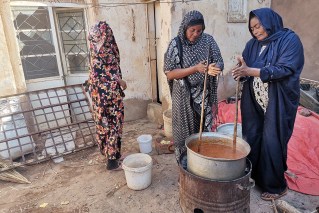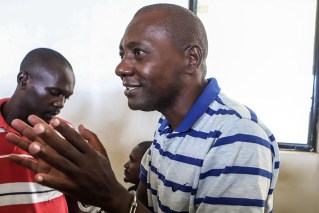Hidden toll of the Ebola crisis: Thousands of children orphaned in a war zone

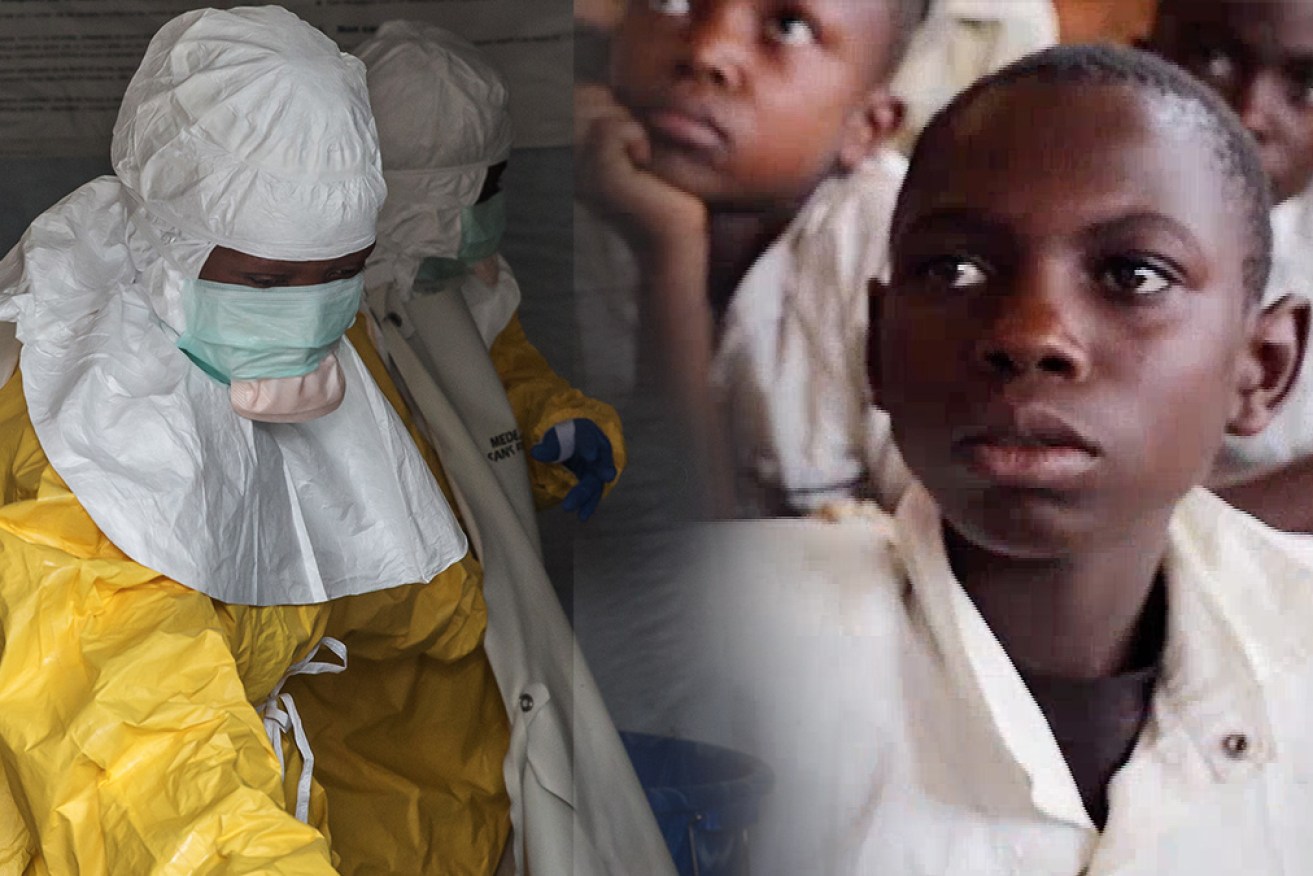
Ebola outbreaks are becoming more common - and that has health authorities worried. Photo: Getty/ World Vision
More than 2200 people have been killed in the past year as a gruesome virus spreads through the Democratic Republic of Congo (DRC).
Now there are fears the outbreak could worsen, amid the discovery Ebola has reached isolated villages away from medical help.
But while the spotlight has been on the victims coming into contact with Ebola, little global attention has been given to those being left behind.
New research hopes to shine a light on the hidden toll of the crisis.
On Thursday, aid workers released findings of their work counting orphans left to fend for themselves since the Ebola crisis flared up again last August.
More than 2400 children have lost their parents, according to the Fear and Isolation report, while 4079 have been separated from families.
At least 600 kids have died.
“We’re very sad because we lost our mother and father’s love,” said Ghislene, 17, whose parents died – on the same day – after contracting Ebola.
“Our friends are afraid of us, because there are people who died of Ebola at our home.”
A young boy in Beni said: “Parents have forbidden us to play, for fear of being infected.
“At school we do not follow the lessons and we are afraid to sit on the same bench, to touch.
“Many people are afraid to approach children who have recovered from Ebola and those whose homes have been touched by Ebola.”
In July, the World Health Organisation (WHO) declared the crisis an international emergency. Then, more than 12 cases of Ebola were being reported every day.
The number of cases began to steadily decline in August. But it appears the situation is worsening again.
Latest figures show that in the week to 15 December, there were 24 new confirmed cases of the virus which spreads through bodily fluids.

A child clings to an adult wearing protective clothing to stop the spread of Ebola. Photo: Getty
Doctors initially believed that the “source” of the spread was one man who they feared had contracted the virus for a second time.
They now believe the man was suffering a “relapse” they described as a revival of the virus which had remained unknown and unrecognised in his system.
“Rare cases of relapse have been documented, in which a person who has recovered from EVD gets disease symptoms again, but this is the first documented relapse in this outbreak,” a WHO report released on Wednesday reads.
Melbourne woman Brianna Piazza recently returned from a trip to the cities of Goma and Beni where cases are spiking.

Brianna Piazza. Photo: World Vision
The World Vision communications officer is just one of many humanitarian workers risking their lives in the region to shine a light on the crisis.
“It was heartbreaking to see toddlers kissing photos of their dead parents and calling out for them, or staring out the front window waiting for their missing mother to come home,” Ms Piazza said.
The release of the report comes as the eastern DRC reels from another eruption of violence.
Just last weekend, at least 43 people – including a pregnant woman –were killed in Beni, one of the epicentres of the Ebola outbreak.
Four aid workers have also been murdered in recent weeks, the threats now so real that doctors have been forced to flee and aid agencies have pulled staff out of the region.
Their deaths, at the hands of Congolese rebels, followed months of slow evacuations by aid groups as violence between warring militias escalated.
With fewer people on the ground to treat the sick in some parts, there are concerns the progress made to contain the virus was for nothing.
“We are heartbroken that people have died in the line of duty as they worked to save others,” Dr Tedros Adhanom Ghebreyesus said following the murders.
“Ebola was retreating. These attacks will give it force again, and more people will die as a consequence.”

An Ebola patient is lifted up by two medical workers in Beni. Photo: Getty
Several rebel groups are highly active in the area which borders Rwanda and Uganda. To make matters worse, local officials have been spreading misinformation saying Ebola is a political ploy.
World Vision interviewed 139 children and 129 adults in six health zones in the DRC’s north Kivu area, the Ebola epicentre. Of child survivors, 70 per cent feel ostracised by friends and 33 per cent by family.
Anne-Marie Connor, World Vision’s National Director for DRC, warned: “Just when we were thinking we could defeat Ebola, the spike in violence proves that things could actually get worse for children.
“I am deeply concerned by what is happening in eastern DRC because children are suffering a multiplicity of challenges like measles and retaliatory killings by armed groups, which have already claimed many more lives than Ebola has.”
